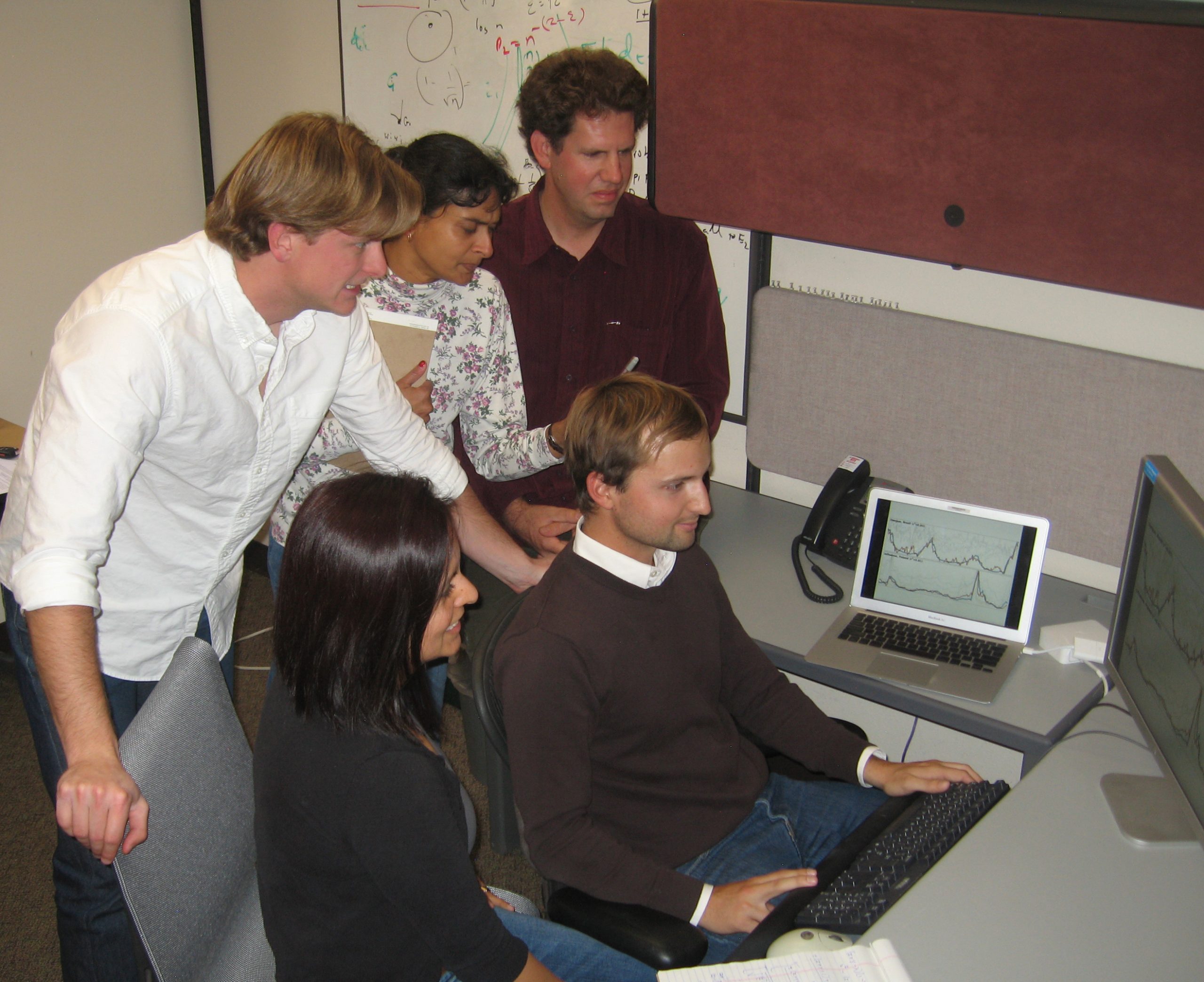Media response: forecasting diseases using Wikipedia
“It’s a perfect mix of exciting science, modern everyday technology, and public health.” Dr Marcel Salathé
Many of us use Wikipedia solely as an online encyclopedia but we need to think bigger – there’s a huge amount to be learnt from the way people interact with sites like this. A recent PLOS Computational Biology article explores this idea in a way that has caught the public’s imagination.
According to recently published research, analysing page views of Wikipedia articles could make it possible to monitor and forecast diseases around the globe.

Image Credit: Stephen Ritchie / Flickr
Dr Sara Del Valle and her team from Los Alamos National Laboratory successfully monitored influenza outbreaks in the United States, Poland, Japan and Thailand, dengue fever in Brazil and Thailand, and tuberculosis in China and Thailand.
The team was able to forecast all but one of these outbreaks (tuberculosis in China) at least 28 days in advance. The results suggest that people start searching for disease-related information on Wikipedia before they seek medical attention. However, the way the Wikipedia data is currently released limits their ability to geo-locate the disease-related information.
The paper outlined several shortcomings in regards to transparency, openness, and reproducibility that need to be overcome before an operational, global disease monitoring and forecasting system can be built. Del Valle said, “We are currently working with the Wikimedia Foundation, the operators of Wikipedia, to develop a public, geo-located form of the access logs which preserves reader and editor privacy.”
In the media:
Since the paper’s publication in November 2014 the article has gained much media attention. The paper was notably reported around the world, in outlets such as The Washington Post, Le Monde, BBC, Los Angeles Times, Agerpres, Süddeutsche.de, The Atlantic, and Popular Mechanics. The team further participated in a Reddit “Ask Me Anything” (AMA) which received over 2944 “upvotes”, 483 comments, and landed on the front page.
The crux of public interest is channelled through social media. Looking at the stats alone the article has been tweeted over 130 times, mentioned on Facebook over 180 times, had a BuzzFeed article and the paper has since received its first Wikipedia citation.
Simply put, within one month the article has gained over 19,000 views. We therefore asked authors and editor for their thoughts about the high volume of public interest surrounding this paper.
The authors told us:
“We were very surprised by the level of public interest in our work,” said Nicholas Generous, lead author of the article. “While we thought the topic was interesting enough that a few outlets would pick it up, we didn’t expect anything like what actually happened. Having the opportunity to directly interact with the public on a topic they were genuinely interested in was extremely rewarding.”

Image Credit: Sara Del Valle
Sara Del Valle: “We were overwhelmed by the media response to our paper. We are thrilled that the public can connect with what we are doing and hope to continue bringing new ideas that can transform public health. Engaging the public in scientific endeavors is what really makes our work exciting.”
The editor told us:
The editor, Dr Marcel Salathé from the Center for Infectious Disease Dynamics at Penn State University, says the paper is part of a new, rapidly growing field called Digital Epidemiology.
“With the unprecedented growth of global access to the internet, we are only at the beginning of what will be a major shift in epidemiology.
“I’m excited that PLOS Computational Biology takes a leading role in publishing research in this area. Open Access will play a key part to rapidly establish standards and best practices, as well as to foster a public debate around the ethical challenges facing the field. As such, I’m both thrilled and not very surprised at the same time to see that the paper has attracted so much media attention. It’s a perfect mix of exciting science, modern everyday technology, and public health.”

[…] how analysis of Wikipedia page views can be used to forecast infectious disease outbreaks. See: https://blogs.plos.org/biologue/2014/12/30/media-response-forecasting-diseases-using-wikipedia/ for a review of the article by Generous, et. al. from the Los Alamos National Laboratory, […]
[…] media and broad scientific community have taken note of a fast-growing segment of research known as digital epidemiology. […]